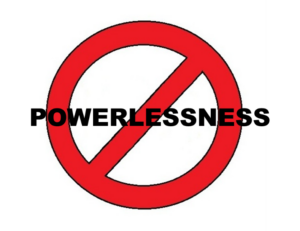[Guest blog post by Michael J., SMART Facilitator & National Meeting Liaison]
In the pursuit of addiction recovery, individuals often seek effective strategies and support systems to guide them on their transformative journey. In recent years, the ancient philosophy of Stoicism and the evidence-based approach of SMART Recovery have gained popularity and recognition for their positive impact on overcoming addictive behaviors. By combining the principles and tools of Stoicism with the practical strategies of SMART Recovery, individuals can unlock a powerful synergy that enhances their recovery process and fosters lasting transformation. In this blog post, we will explore how the integration of Stoicism and SMART Recovery creates a dynamic and holistic approach to addiction recovery, offering individuals the tools, support, and mindset needed to achieve sustainable and transformative change.
Stoicism: A Philosophy for Resilience and Virtuous Living
Stoicism, an ancient philosophy developed by philosophers such as Epictetus, Seneca, and Marcus Aurelius, provides individuals with a practical framework for personal growth, resilience, and ethical living. At its core, Stoicism teaches individuals to focus on what is within their control and accept what is beyond it. By embracing virtues such as wisdom, courage, temperance, and justice, individuals align their actions with their values and forge a path of virtuous living. Stoicism emphasizes self-discipline, resilience, and the development of a resilient mindset to navigate life’s challenges.
SMART Recovery: An Evidence-Based Approach to Addiction Recovery
SMART Recovery, which stands for Self-Management and Recovery Training, is a widely recognized and evidence-based secular approach to addiction recovery. Different from twelve-step programs, SMART is rooted in Rational Emotive Behavioral Therapy (REBT) and cognitive-behavioral therapy (CBT) principles and emphasizes self-empowerment and self-directed change. SMART Recovery provides individuals with practical tools to build and maintain motivation, skills to cope with urges, tools to manage thoughts, feelings, and behaviors, and make lasting positive lifestyle changes. It promotes self-reliance, personal responsibility, and the development of a supportive community through 1,100 public recovery meetings throughout the United States & Canada.
The Synergy of Stoicism and SMART Recovery
Integrating Stoicism and SMART Recovery creates a powerful synergy that addresses the multifaceted aspects of addiction recovery. They share common elements that complement each other and enhance the recovery journey.
Self-Awareness and Acceptance
Stoicism and SMART Recovery both emphasize the importance of self-awareness and acceptance as the foundation for change. They both teach individuals to examine and reflect on their thoughts, feelings, and behaviors. The combination of self-awareness and acceptance helps individuals gain insight into their addictive patterns and develop a compassionate understanding of themselves.
Rational Thinking and Cognitive Restructuring
Stoicism and SMART Recovery promote rational thinking and challenge distorted beliefs, which aligns with the cognitive restructuring techniques used in SMART. Individuals can replace unhelpful thoughts and irrational beliefs with more realistic new beliefs and positive thinking patterns. This shift in thinking supports healthy decision-making and empowers individuals to overcome addictive behaviors.
Embracing Virtues and Values
Stoicism’s focus on virtue cultivation aligns with SMART Recovery’s emphasis on values-based living. Both approaches encourage individuals to identify their core values and align their actions with them. By cultivating virtues and living in alignment with their values, individuals develop a sense of purpose and create a strong foundation for lasting recovery.
Community Support and Accountability
SMART Recovery meetings provide individuals with a supportive network of peers who understand the challenges of addiction recovery. Stoicism’s emphasis on virtuous relationships and the importance of community support further strengthens this aspect of recovery. Engaging with a community with similar values and goals provides individuals with accountability, encouragement, and a sense of belonging. In SMART, a sense of community is developed through peer engagement and encouraged crosstalk during the meetings.
Resilience and Coping Skills
Stoicism’s teachings on resilience and the acceptance of life’s challenges, combined with the practical coping skills offered by SMART Recovery, create a robust framework for building resilience in addiction recovery. Stoicism and SMART teach individuals to view setbacks as opportunities for growth and to develop the inner strength to persevere. SMART further equips individuals with specific coping strategies to navigate triggers, cravings, and difficult emotions surrounding their addictive behaviors. The combination of these approaches empowers individuals to face adversity with resilience and adaptability.
Conclusion
The pairing of Stoicism and SMART Recovery offers a dynamic and holistic approach to addiction recovery, addressing the physical, emotional, and philosophical aspects of the journey. By integrating the principles, tools, and practices of Stoicism with the evidence-based strategies of SMART, individuals gain a comprehensive toolkit to navigate the challenges of addiction and achieve transformative change.
The integration of Stoicism fosters self-awareness, rational thinking, virtue cultivation, and a resilient mindset. It encourages individuals to embrace personal responsibility, live in alignment with their values, and find meaning and purpose in their recovery journey. Meanwhile, SMART Recovery provides practical coping skills, a supportive community, and evidence-based strategies that empower individuals to make positive changes, manage urges and cravings, and develop healthy lifestyles.
Together, Stoicism and SMART Recovery create a powerful synergy that amplifies the transformative potential of addiction recovery. This dynamic combination promotes self-empowerment, personal growth, and sustained sobriety. It offers individuals a roadmap for navigating the complexities of addiction recovery while cultivating resilience, self-awareness, and virtuous living.
As you embark on your own journey of addiction recovery, consider incorporating the principles of Stoicism and exploring the resources and support offered by SMART Recovery. Remember, each person’s path is unique, and finding the approach that resonates with you is essential. By harnessing the wisdom of Stoicism and the practical strategies of SMART Recovery, you can discover the strength within yourself to overcome addiction, cultivate resilience, and live a fulfilling life of transformative recovery.
Sources:
- Robertson, D. (2020). How to Think Like a Roman Emperor: The Stoic Philosophy of Marcus Aurelius. St. Martin’s Essentials.
- SMART Recovery. (n.d.). Retrieved from https://www.smartrecovery.org/
- Irvine, W. B. (2019). A Guide to the Good Life: The Ancient Art of Stoic Joy. Oxford University Press.
- SMART Recovery Handbook. (2017). SMART Recovery Press.





